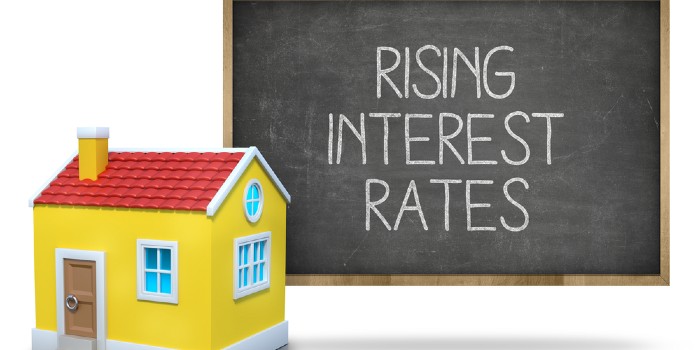8 November 2022 – Rising interest rates put further pressure on already tight household budgets and the housing market now shows clear signs of slowing down.
Last week the Bank of England (BoE) has raised the base rate – also called interest rate – by 0.75% to 3%. This further rise will make buying a house less affordable for many.
And it doesn’t just impact on first-time buyers, who will now find it more difficult to get a mortgage to get on the housing ladder. People who want to move to a bigger home will also find it more difficult to get the necessary finance in place, even if they have a larger deposit in form of their current home.
Mini-Budget To Blame
While interest rates have been on the rise for a while as the BoE tried to get rising inflation under control, the recent hike in mortgage rates has been blamed on the mini-budget, which Kwasi Kwarteng, then Chancellor, has announced in September.
The markets reacted badly to the tax cuts, worth billions of pounds, announced in the statement because the Government did not accompany their announcement with a fiscal forecast and neither did they say how these tax cuts were funded.
Within minutes of the announcement the pound fell to a record low against the dollar, although it has recovered since. But even more worryingly for the housing market, a huge number of mortgage products were withdrawn from the market in the following days.
And while the markets have calmed down since, especially because the new Chancellor, Jeremy Hunt, has reversed almost all measures that were announced in the mini-budget, mortgage rates have shot up.
The average two-year and five-year fixed mortgage rates have exceeded 6%, increasing mortgage payments for millions of households by huge amounts.
Since the mini-budget, buyer demand has fallen sharply, which has resulted in house prices starting to fall slightly. Most recently by 0.4% in October, according to new data from Halifax. Meanwhile, Nationwide reported a 0.9% fall in house prices in October.
While there is a chance that mortgage rates have now peaked, many potential homebuyers have taken the decision to put their plans to buy a house on hold, if they need a mortgage to finance the purchase.
While it is likely that those rates have peaked for now – following the reversal of previously announced fiscal measures – it appears that recent events have encouraged those with existing mortgages to look at their options, and some would-be homebuyers to take a pause.
Kim Kinnaird, Mortgage Boss at Halifax
The long awaited autumn budget, that was initially planned for 31 October and will now be delivered on 17 November, is likely to include tax rises, which will put further pressure on household budgets.
Therefore, it seems inevitable that the housing market will slow down further in the next few months and not just because of Christmas.
House Prices Predicted To Fall By 12%
According to economist Paul Dales, house prices are likely to fall by 12% in the 18 months outside of London and in London he predicts a 15% fall in the same period of time.
This is a higher percentage than previous forecasts, which have predicted that house prices would fall by between 5% and 10% in the next two years.
While this is bad news for homeowners, it’s good news for potential first-time buyers who want to get on the property ladder.
But for the time being, house prices are still set to rise this year compared to last year. The annual growth rate now stands at 8.3%, down from 9.8% last month, according to Halifax data.
High Mortgage Rates Could Cause Disaster In Rental Market
While high mortgage rates have led to a slowdown in the property sales market, it could spell disaster in the rental market. Already, many would-be first-time buyers were priced out of the property market and have to continue to rent.
This has increased demand in the rental market, which was already high. Combined with the low stock levels, this has caused rents to skyrocket.
But now there is a risk that many private landlords will sell their rental properties, because they are no longer able to pay the monthly mortgage payments.
This will just add to the mounting costs for landlords face, which include payments for improving the energy efficiency of their properties. The cost-of-living crisis also means that many tenants struggle to pay their rent, which impacts on landlords.
With higher interest payments that cannot be offset against tax, a need to improve the energy efficiency of properties, tenants that are likely to struggle to pay rent and the increasing cost of building materials these are already impacting the profitability of buy to let and we expect more landlords to decide it’s now time to sell up.
Angus Stewart from Property Master
If landlords do sell up in droves, this could exacerbate the supply issues even further, driving up rents, which would be a disaster for the rental market.




